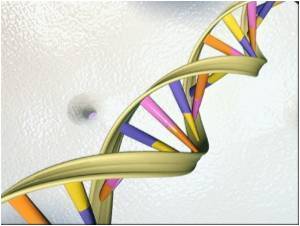The most comprehensive snapshot to date of DNA regions that regulate genes in human pancreatic islet cells, a subset of which produces insulin has been captured by scientists.

"This study applies the power of epigenomics to a common disease with both inherited and environmental causes," said NHGRI Scientific Director Daniel Kastner.
"Epigenomic studies are exciting new avenues for genomic analysis, providing the opportunity to peer deeper into genome function, and giving rise to new insights about our genome's adaptability and potential," Kastner said.
The researchers used DNA sequencing technology to search the chromatin of islet cells for specific histone modifications and other signals marking regulatory DNA.
Computational analysis of the large amounts of DNA sequence data generated in this study identified different classes of regulatory DNA.
"This study gives us an encyclopedia of regulatory elements in islet cells of the human pancreas that may be important for normal function and whose potential dysfunction can contribute to disease," said senior author Francis S. Collins.
Advertisement
The findings appear in Nov. 3 issue of Cell Metabolism.
Advertisement















